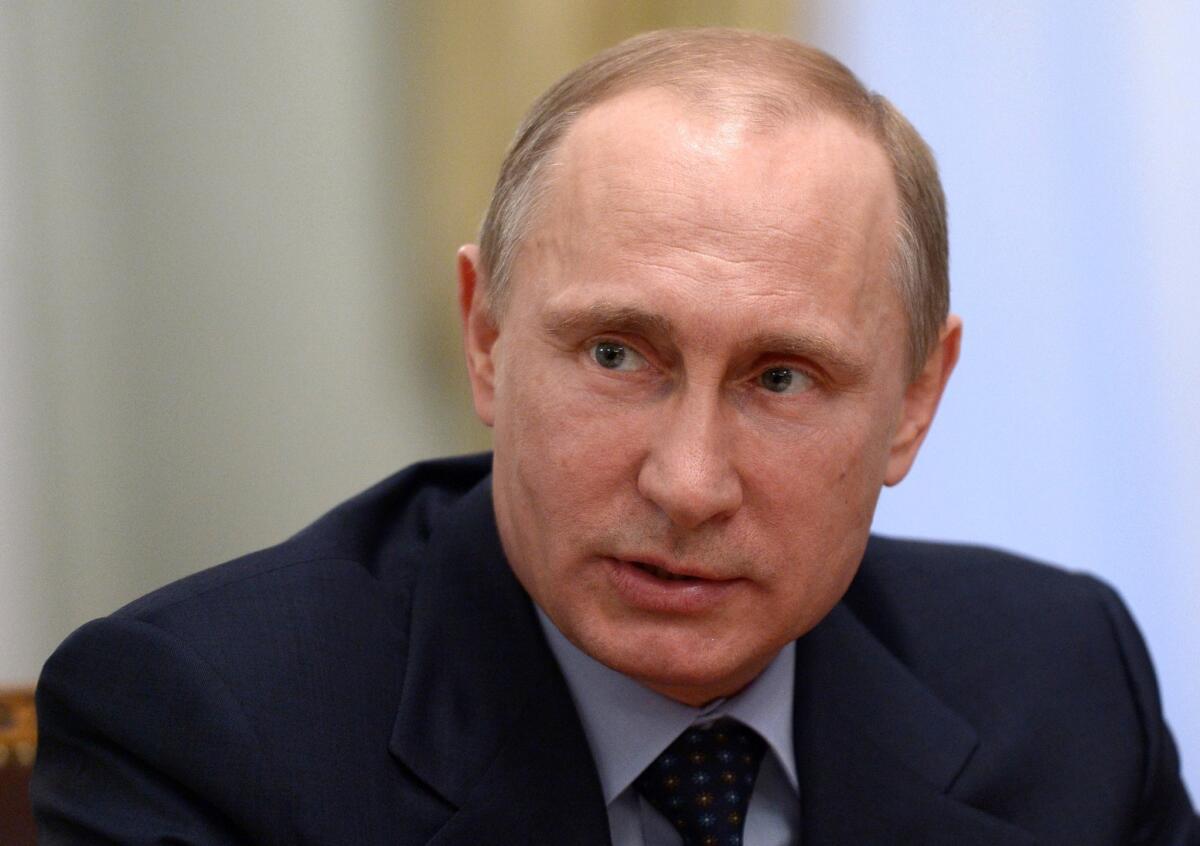Editorial: Standing up to Russia

Perhaps Russia can be induced to pull its troops back from the border with Ukraine and to abandon efforts to destabilize what is left of that country after its illegal annexation of Crimea. It’s not a sign of weakness for the United States and other nations to pursue those objectives through negotiations.
But the U.S. and its European allies simultaneously need to make it clear that if Russia continues to threaten and intimidate Ukraine, new economic sanctions will be imposed not only on individual high-ranking Russian officials but also on entire sectors of the Russian economy. That would admittedly be a more painful policy for European countries than for the United States, given Europe’s dependence on Russian energy.
On Sunday, in a debate that recalled Cold War confrontations between the U.S. and the old Soviet Union, U.S. envoy Samantha Power accused Russia of orchestrating the “synchronized surgical seizure of buildings” in eastern Ukraine by pro-Russia separatists.
Power didn’t provide a smoking gun comparable to the reconnaissance photos brandished by her predecessor Adlai Stevenson in 1962, when he accused the Soviets of installing nuclear missiles in Cuba. But she referred to “videos of professional military shepherding thugs into a building in Kramatorsk” and “the photographs showing the so-called concerned citizens taking over Slavyansk equipped exactly like the elite troops that took Crimea.” (Pro-Russia forces continued to occupy government buildings Monday, as Ukraine’s president called for the deployment of a United Nations peacekeeping force — an operation that Russia could block by exercising its veto on the U.N. Security Council.)
Unlike in Crimea, Russian President Vladimir Putin may not intend to annex the regions in eastern Ukraine where armed separatists have challenged the government in Kiev. His objective may instead be to undermine the authority of Ukraine’s current leaders and pressure them into granting greater autonomy to pro-Russia regions. But that sort of “slow-motion invasion” is also an intolerable violation of Ukraine’s sovereignty.
Ukraine isn’t a member of NATO and the alliance isn’t bound to defend it. Arizona Republican Sen. John McCain’s suggestion that the United States supply Ukraine with “light weapons” (which would be useless against the Russian army) is more of a primal scream than a policy prescription. But the U.S. and its allies can take measures short of military action to punish Putin for his adventurism and disregard for international law. After the invasion of Crimea, German Chancellor Angela Merkel warned that Russia would face “massive” political and economic damage if it didn’t change course. That can’t become a hollow threat.
More to Read
A cure for the common opinion
Get thought-provoking perspectives with our weekly newsletter.
You may occasionally receive promotional content from the Los Angeles Times.










